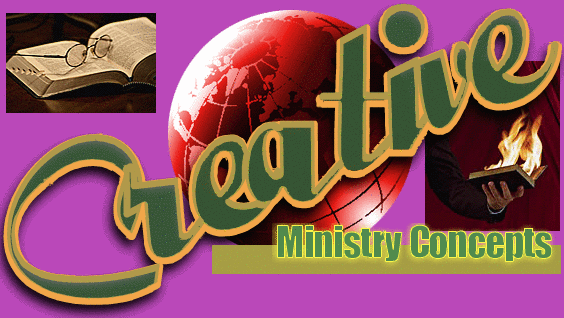What is truth? Truth is challenged more and more in the times in which we live. There has never been a time in history when there has been such a redefining of truth as exist today. In fact, there is a blatant denial by many who say that there is no truth at all. This of course is totally contrary to what the Word of God says. God’s word without a doubt makes it clear truth is very evident and can only be found in God and His Word.
Reality is how the English words truth and true are articulated. It conveys what really exist or what is based on fact. Not assumption, not opinion, not suggestion or theory. Instead, it is, as the old expression goes, “telling it like it is.” If something is true, it is completely reliable, totally secure. It cannot change because doing so would mean it’s not true or dependable.
The Greek aletheia (G225) basically means the same thing as the English. Aletheia means non-concealment”. It signifies what is actually seen, pointed out, spoken or revealed. In other words, something as it really is, instead of being covered up or falsified. Aletheia addresses the factual state of affairs.
Along with its related words, Alētheia, appears about 187 times in the NT. One example is John 1:14, where reference is made to the incarnate Christ: “And the Word became flesh, and dwelt among us, and we saw His glory, glory as of the only begotten from the Father, full of grace and truth”.
In John 16:13, our Lord promised, "But when He, the Spirit of truth, comes, He will guide you into all the truth; notice what is promised, all that is dependable, steady, certain and unchanging. Both passages, along with others, convey the concept that truth is that which is not concealed, but what is actual.
So the essential concept that must be understood about truth is that it is that which is absolute, that which is unquestionable, indisputable, undeniable, unarguable, and unchanging. If something is true, it’s true forever and can never be untrue, regardless of the circumstances.
The question is, although there are many claims to truth in the world, do those claims offer that which is certain, dependable and unchanging? The world’s three best claims of how to discover truth is worth some scrutiny.
[1] Science makes the greatest claim to being a source of truth in our time. But we must ask, does science really qualify as a source of truth? Is it always certain, dependable, and unchanging? Science, for example once claimed that it was accepted fact that light travels in a straight line, but it was later discovered that gravity actually bends light. Many other examples can be cited of the fast rate that previous laws of science are made redundant and replaced by new ones.”
[2] Philosophy also claims to being a source of truth in our day. Philosophy is a direct transliteration of the Greek philosophia, which literally means, “love of wisdom.” Some believe that ultimate knowledge can be found in man’s own thinking. For that reason, philosophy, has historically been man’s effort to explain the universe around him and the meaning of his own existence. But is philosophy truth? Barely Why? Because every philosopher has something different to say. The fact of the matter is, in a sense, everyone is a philosopher because he or she embrace some system of “truth.” So, who’s right?
[3] Finally, another claim to being a source of truth is made by religion, which is basically just another philosophy. Of course, biblical Christianity is in a sense, a religion. However, in the NT where the word religion appears in five verses, it’s always qualified by a modifier. In Acts 26:5 Paul, talking as a Pharisee, makes reference to “our religion,” that is, the works-oriented religion which Judaism had become. Again in Gal. 1:13-14, he uses the expression “the Jew’s religion.” Calling one religion “man’s religion” and the other “pure religion,” James uses two modifiers, (James 1:26-27).
Consequently, there is an obvious difference between “religion” per se and “pure religion.” The word pure translates katharos, and it means that which is authentic or that which is free from any inappropriate mixture. In contrast to just “religion, Biblical Christianity is the “genuine article. ”
Review and Meditation: What does is the pronouncement of John 14:6? According to John 16:13, what is one ministry of the Holy Spirit? What is a outcome of truth as stated in John 17:17 and 19?
See word study on purge kathairō
Reality is how the English words truth and true are articulated. It conveys what really exist or what is based on fact. Not assumption, not opinion, not suggestion or theory. Instead, it is, as the old expression goes, “telling it like it is.” If something is true, it is completely reliable, totally secure. It cannot change because doing so would mean it’s not true or dependable.
The Greek aletheia (G225) basically means the same thing as the English. Aletheia means non-concealment”. It signifies what is actually seen, pointed out, spoken or revealed. In other words, something as it really is, instead of being covered up or falsified. Aletheia addresses the factual state of affairs.
Along with its related words, Alētheia, appears about 187 times in the NT. One example is John 1:14, where reference is made to the incarnate Christ: “And the Word became flesh, and dwelt among us, and we saw His glory, glory as of the only begotten from the Father, full of grace and truth”.
In John 16:13, our Lord promised, "But when He, the Spirit of truth, comes, He will guide you into all the truth; notice what is promised, all that is dependable, steady, certain and unchanging. Both passages, along with others, convey the concept that truth is that which is not concealed, but what is actual.
So the essential concept that must be understood about truth is that it is that which is absolute, that which is unquestionable, indisputable, undeniable, unarguable, and unchanging. If something is true, it’s true forever and can never be untrue, regardless of the circumstances.
The question is, although there are many claims to truth in the world, do those claims offer that which is certain, dependable and unchanging? The world’s three best claims of how to discover truth is worth some scrutiny.
[1] Science makes the greatest claim to being a source of truth in our time. But we must ask, does science really qualify as a source of truth? Is it always certain, dependable, and unchanging? Science, for example once claimed that it was accepted fact that light travels in a straight line, but it was later discovered that gravity actually bends light. Many other examples can be cited of the fast rate that previous laws of science are made redundant and replaced by new ones.”
[2] Philosophy also claims to being a source of truth in our day. Philosophy is a direct transliteration of the Greek philosophia, which literally means, “love of wisdom.” Some believe that ultimate knowledge can be found in man’s own thinking. For that reason, philosophy, has historically been man’s effort to explain the universe around him and the meaning of his own existence. But is philosophy truth? Barely Why? Because every philosopher has something different to say. The fact of the matter is, in a sense, everyone is a philosopher because he or she embrace some system of “truth.” So, who’s right?
[3] Finally, another claim to being a source of truth is made by religion, which is basically just another philosophy. Of course, biblical Christianity is in a sense, a religion. However, in the NT where the word religion appears in five verses, it’s always qualified by a modifier. In Acts 26:5 Paul, talking as a Pharisee, makes reference to “our religion,” that is, the works-oriented religion which Judaism had become. Again in Gal. 1:13-14, he uses the expression “the Jew’s religion.” Calling one religion “man’s religion” and the other “pure religion,” James uses two modifiers, (James 1:26-27).
Consequently, there is an obvious difference between “religion” per se and “pure religion.” The word pure translates katharos, and it means that which is authentic or that which is free from any inappropriate mixture. In contrast to just “religion, Biblical Christianity is the “genuine article. ”
Review and Meditation: What does is the pronouncement of John 14:6? According to John 16:13, what is one ministry of the Holy Spirit? What is a outcome of truth as stated in John 17:17 and 19?
See word study on purge kathairō

Truth - (Greek alētheia )
Pronounced al-ay’-thi-a
Pronounced al-ay’-thi-a
ΑΒΓΔΕΖΗΘΙΚΛΜΝΞΟΠΡΣΤΥΦΧΨΩ
"It is written, "'Man shall not live by bread alone, but by every word that comes from the mouth of God.'" - Jesus Matt. 4:4

Glorifying the Triune God by creatively declaring the relevancy and practicality of His timeless Word.